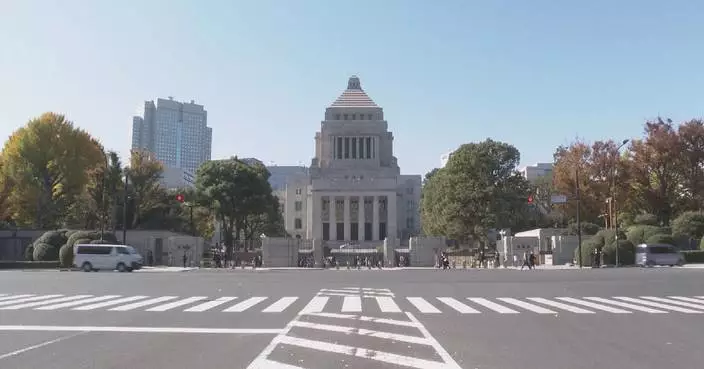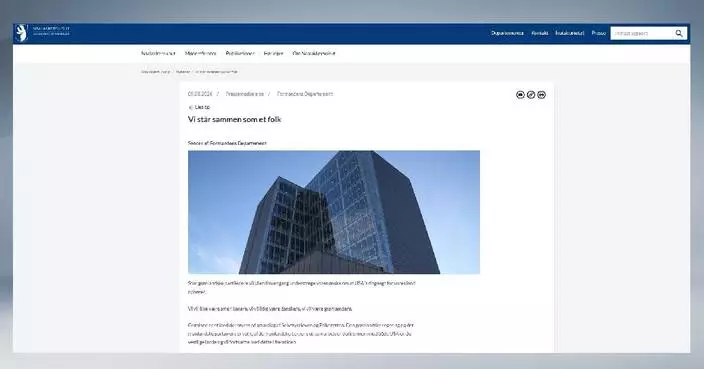A Chinese communication and navigation technology test satellite, known as the Tiandu-1, has recently conducted a laser ranging technology test in the Earth-Moon space under strong daylight interference conditions, marking a world first, according to the satellite's developer, China’s Deep Space Exploration Lab (DSEL), on Tuesday.
This achievement represents a major technological breakthrough for China in the field of precise measurements in deep space orbits.
Laser ranging on satellites in the Earth-Moon space is akin to targeting a single hair from 10,000 kilometers away while performing precise tracking and signal capture. In the past, such tests could only be conducted at night when light interference was minimal.
The successful daylight laser ranging test has effectively expanded the observation window, providing crucial support for major deep space exploration missions, such as the International Lunar Research Station.
The Tiandu-1 and Tiandu-2 satellites were launched into space alongside the Queqiao-2 relay satellite on March 20, 2024. They entered their target circumlunar orbits on March 29 and separated on April 3. The Tiandu-1 has already completed multiple new technology tests in orbit.
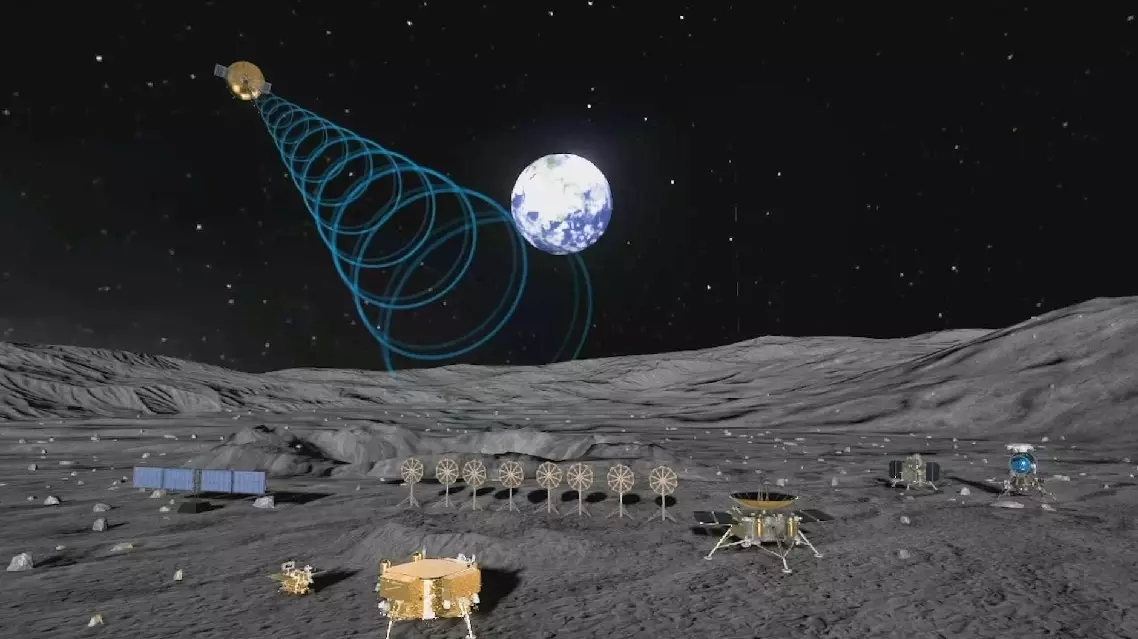
China's Tiandu-1 satellite conducts laser ranging in Earth-moon space under daylight
The Guangdong–Hong Kong–Macao Greater Bay Area (GBA) is emerging as a key engine for China's fast-growing low-altitude economy by leveraging its dense industrial networks, efficient logistics systems, and rapid innovation capacity.
From logistics and manufacturing to urban services, the region is building an integrated industrial chain that allows low-altitude industries to scale up at unprecedented speed, thus turning drone-based applications from isolated trials into large-scale, commercial operations.
China's 15th Five-Year Plan, covering 2026 to 2030, calls for the cultivation of new pillar industries and the accelerated development of strategic emerging industrial clusters, including the low-altitude economy.
At a drone operations center in Bao'an District, Shenzhen City in south China's Guangdong Province, a dozen logistics drones take off and land within minutes. Urgently needed production parts, documents, and small parcels are dispatched from here to cities in the province including Dongguan, Zhongshan, and Zhuhai.
Behind these high-flying aircraft lies what observers describe as an "invisible industrial chain", built on speed and efficiency.
"Look at this aircraft. About 90 percent of its components come from nearby areas. Relying on Shenzhen's strong logistics capabilities and its complete supply chain, these parts can be delivered to our factory within half an hour for assembly, processing, and production," said Li Kunhuang, person-in-charge of Shenzhen GODO Innovation Technology Co., Ltd.
Once a new product is unveiled, testing and calibration begin immediately at the drone testing field. As soon as the process is completed, the new models can be put into real-world operation, realizing almost “zero delay” from research and development to application.
Supported by a robust industrial chain, low-altitude routes in Shenzhen are effectively connecting the urban landscape. From its Bao'an District to Songshan Lake in Dongguan City, production components can be delivered within one hour. Supplies are transported between Zhuhai City's Xiangzhou Port to Dong'ao Island in just 25 minutes. And light industrial goods can travel round-trip within a single day between Guzhen Town in Zhongshan City and Xinhui District in Jiangmen City.
More low-altitude application scenarios are expected to be implemented in the near future.
In Qianhai District, Shenzhen is accelerating the construction of a pilot demonstration zone of low-altitude integrated three-dimensional transportation hub.
"We have built the country's first low-altitude integrated three-dimensional transportation hub, and are gradually developing a pilot flight zone that integrates multiple scenarios such as inspection, logistics, and cultural tourism. This will provide technical support for the next step of commercializing cross-border logistics and emergency rescue services across the Guangdong–Hong Kong–Macao Greater Bay Area," said Wu Xuemin, head of the Shenzhen Qianhai Low-Altitude Integrated Three-Dimensional Transportation Hub Pilot Demonstration Zone.
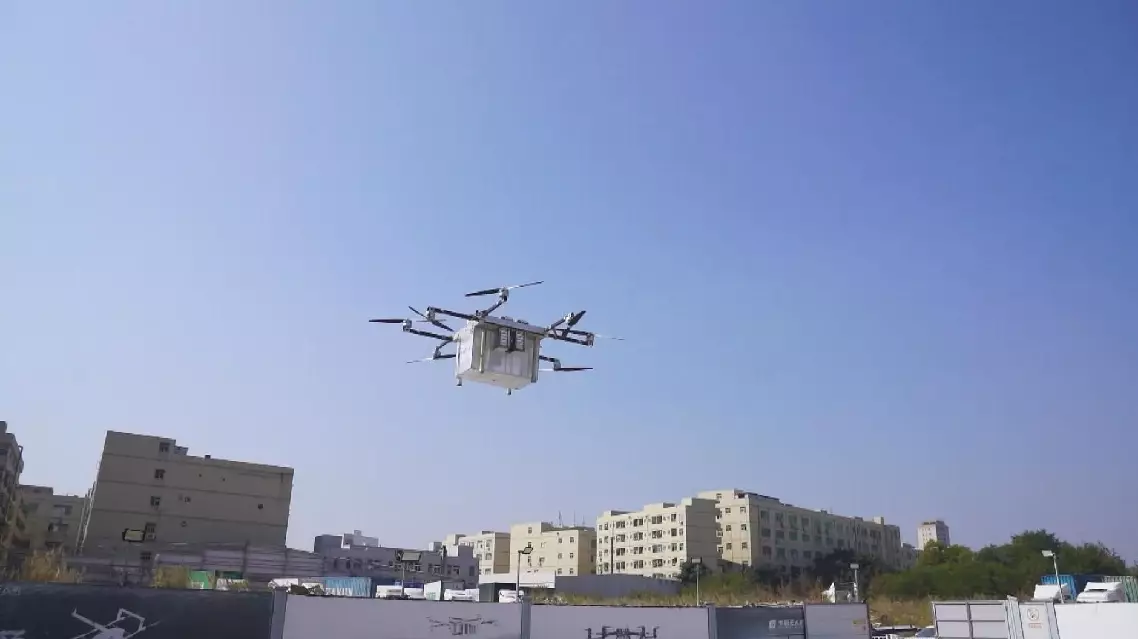
Integrated supply chains propel Greater Bay Area's low-altitude economy growth
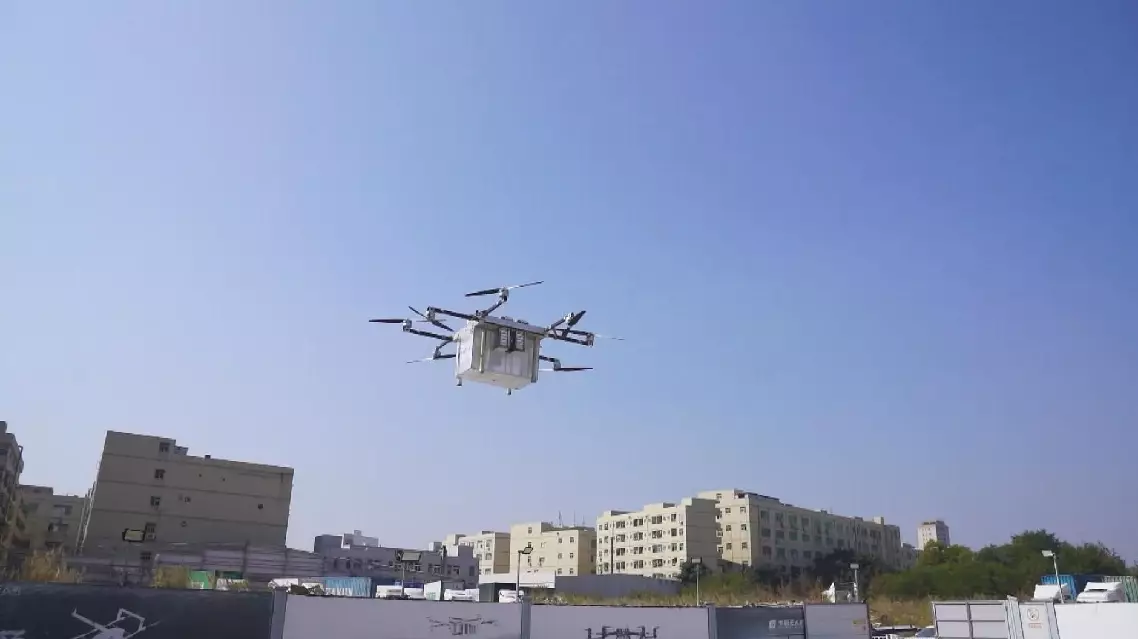
Integrated supply chains propel Greater Bay Area's low-altitude economy growth






